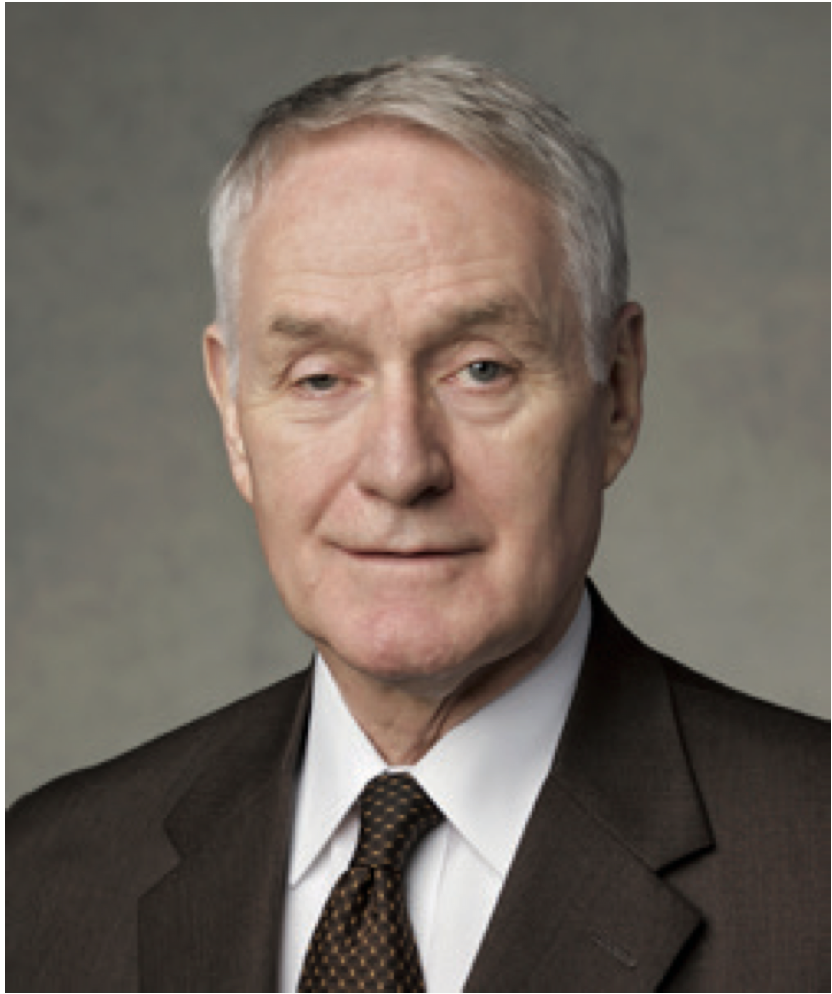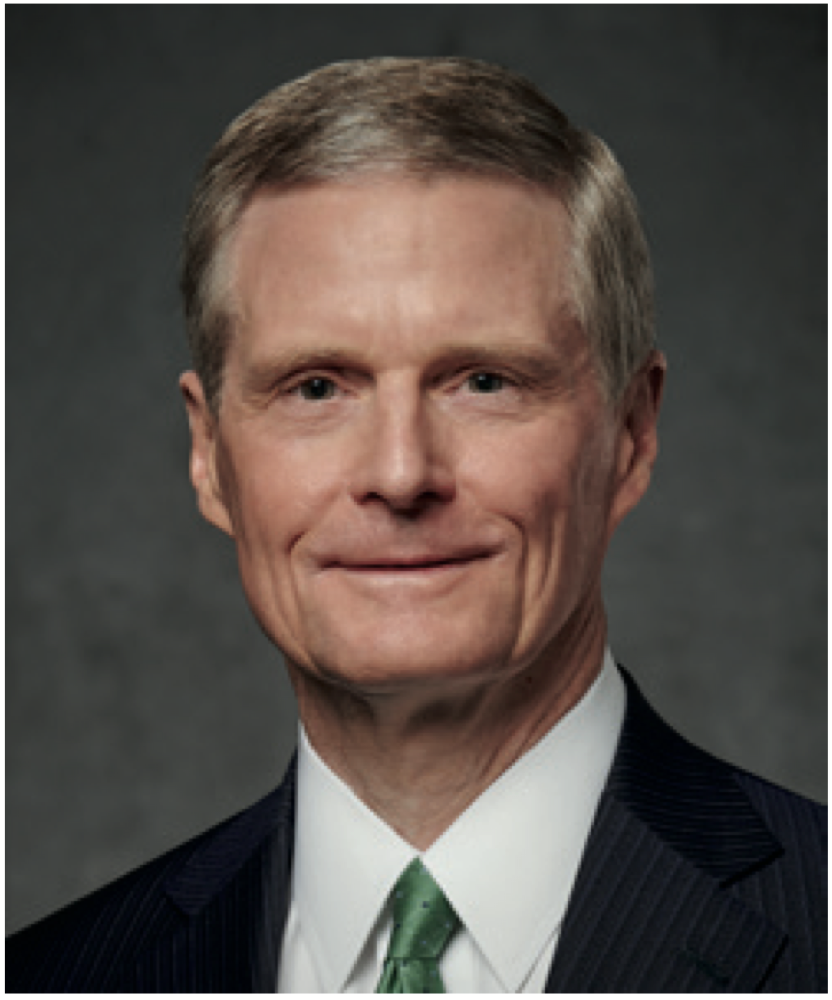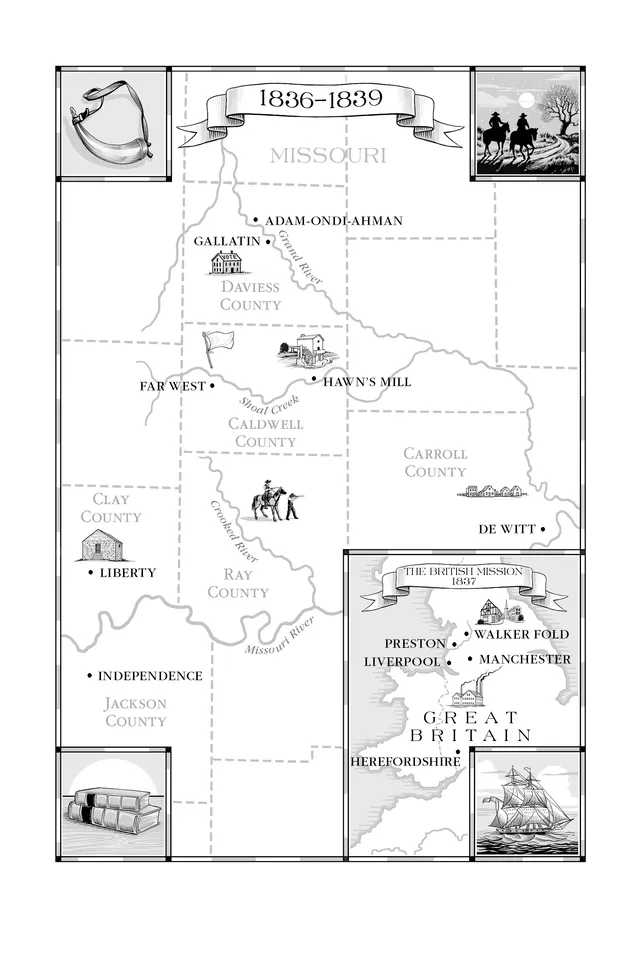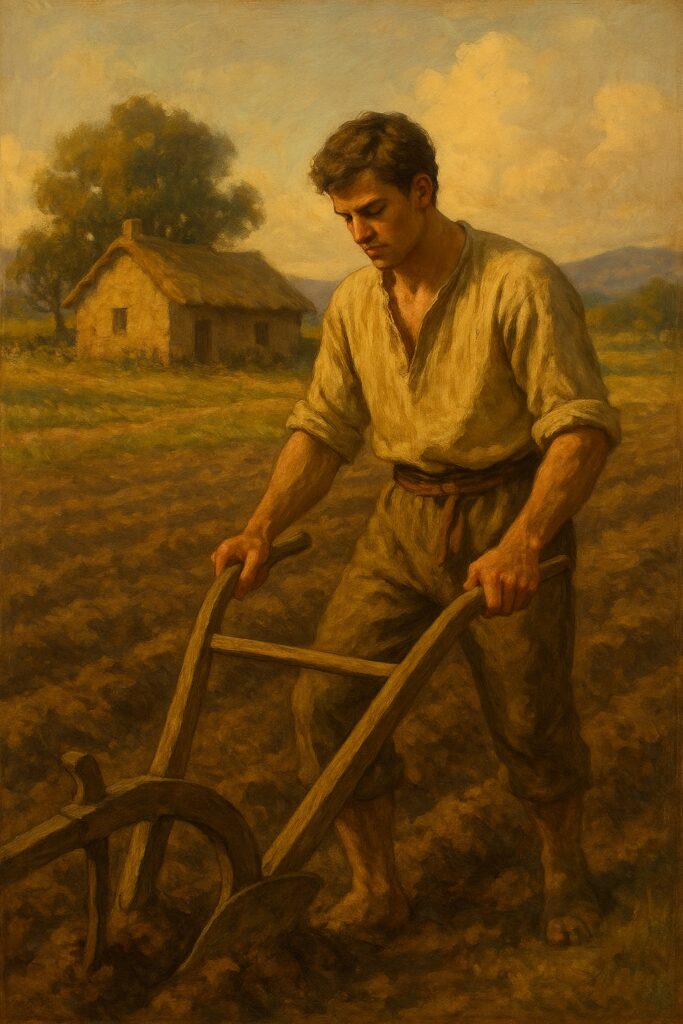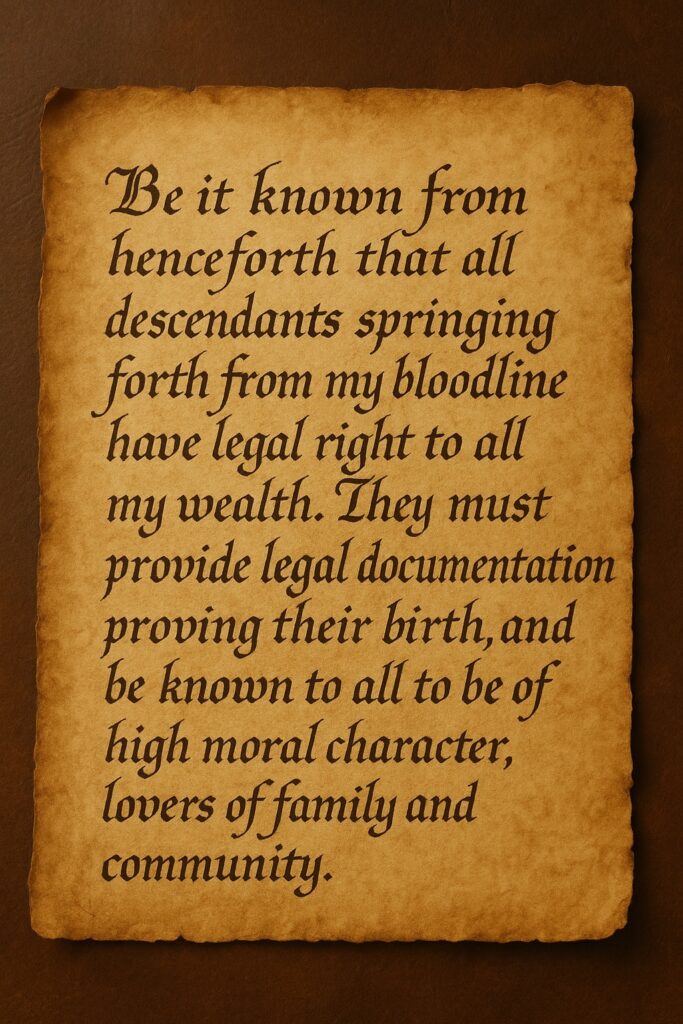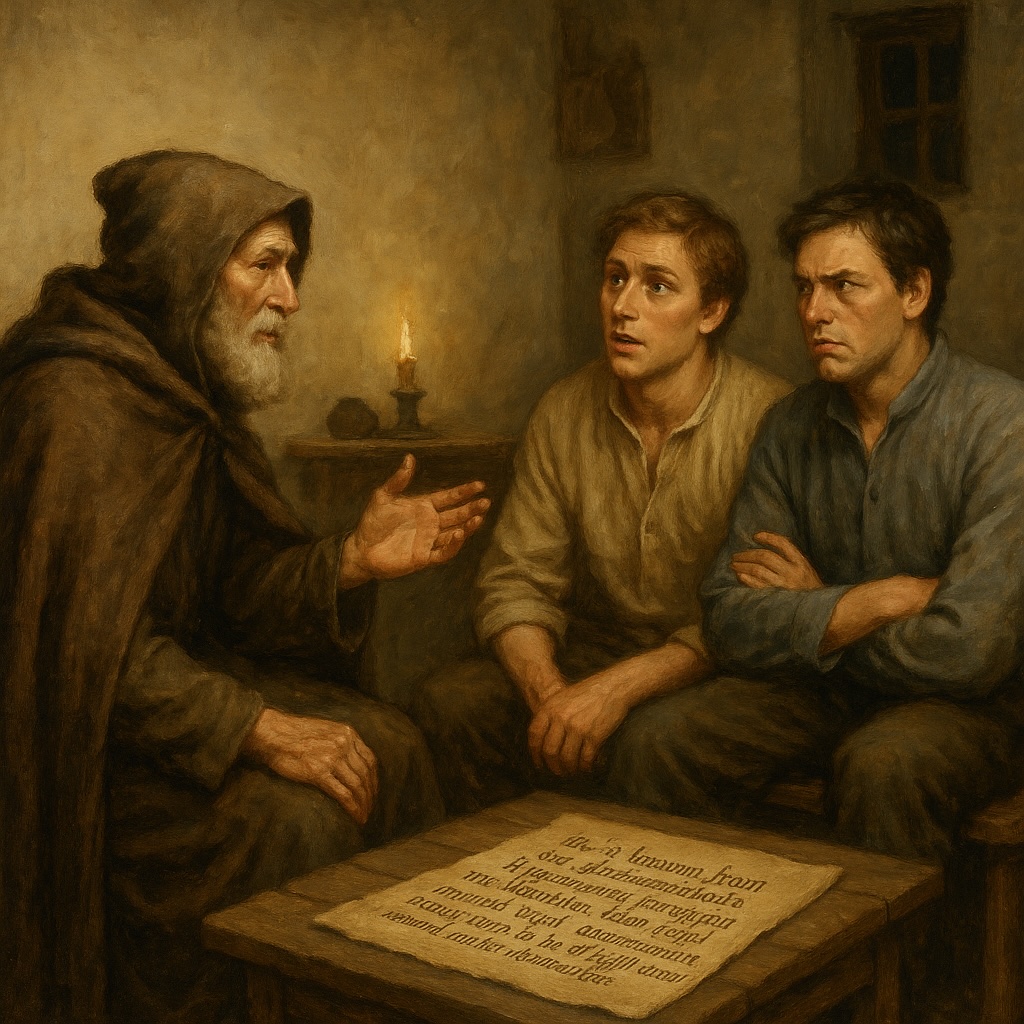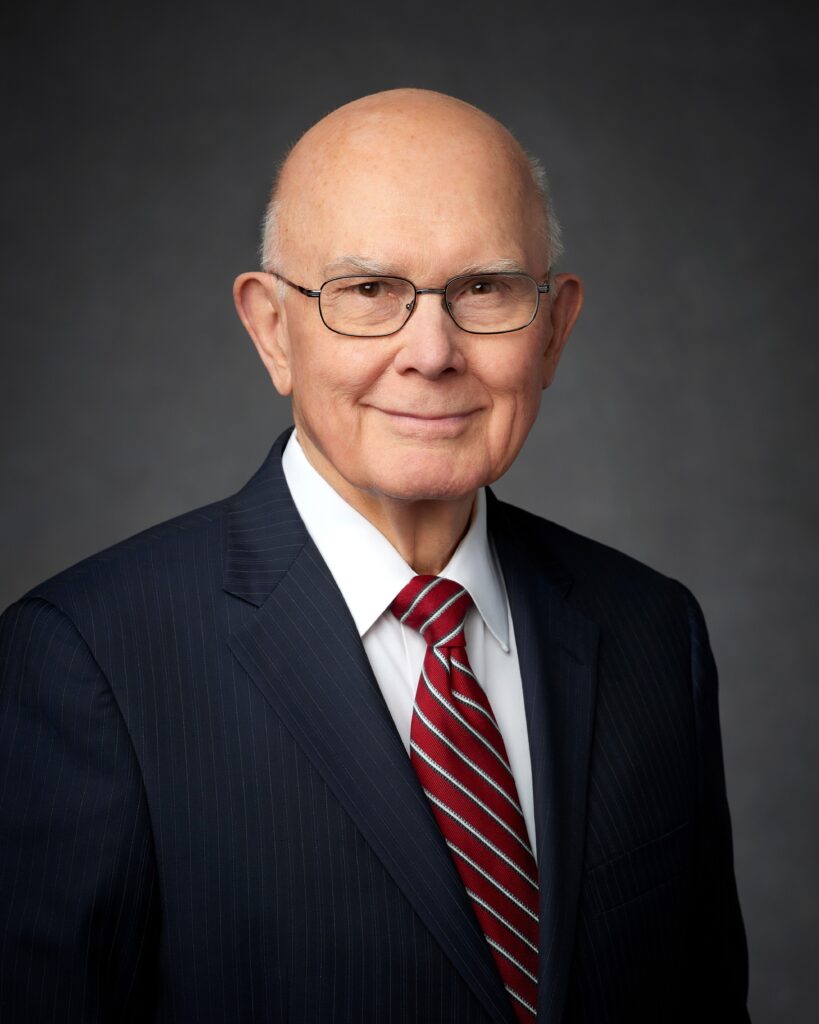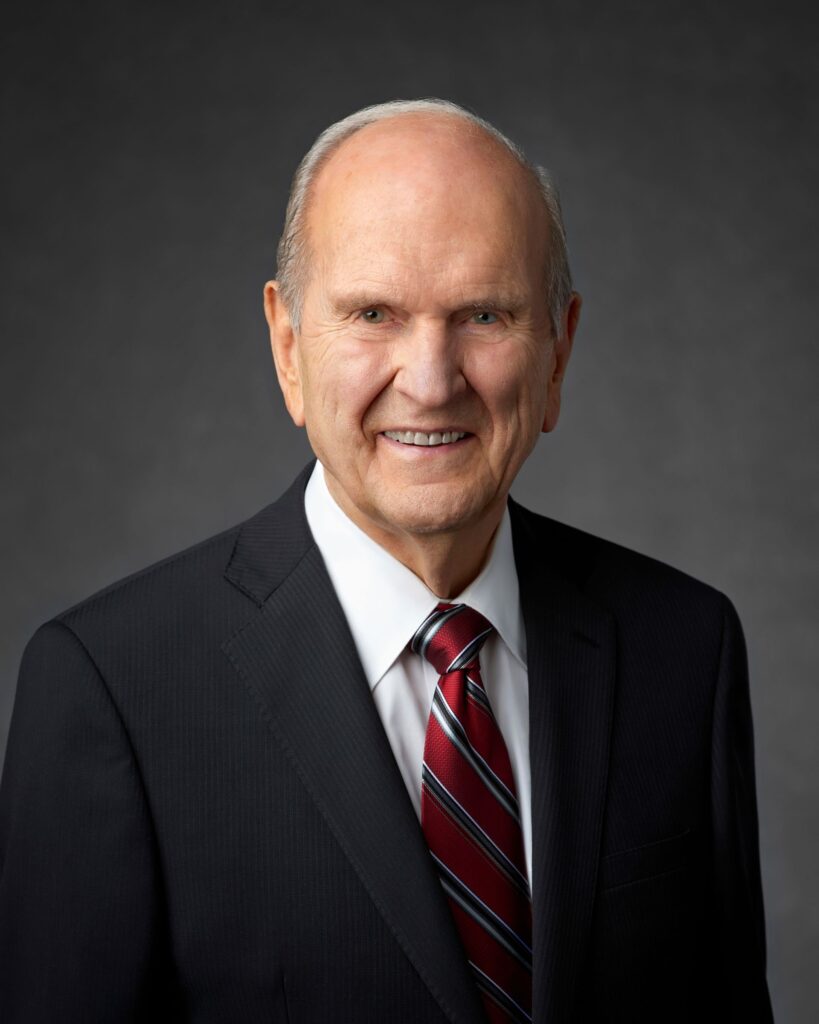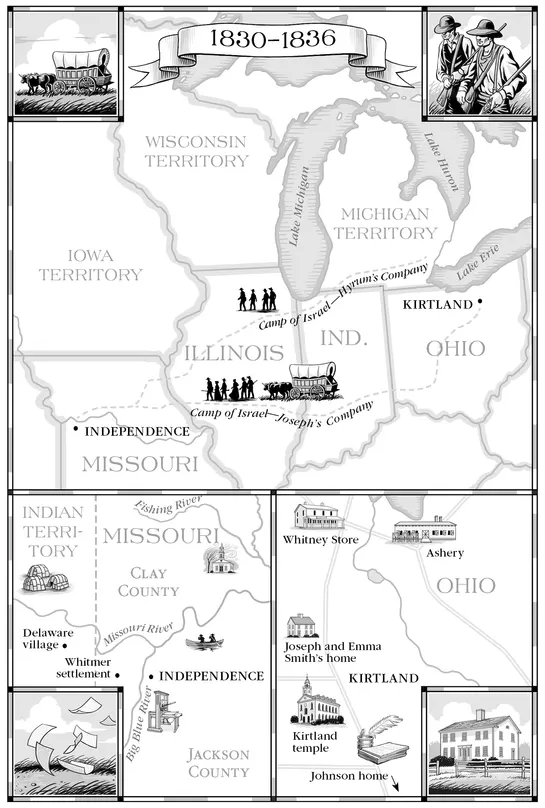Excerpts from Saints Vol 1 Chapt 11 “Ye Shall Receive My Law”
Ann and Newel Whitney were grateful to have Joseph and Emma in Kirtland. Although the Whitneys had three small children and an aunt living with them, they invited the Smiths to stay in their house until they found a place of their own. Since Emma was far along in her pregnancy, Ann and Newel moved into an upstairs room so she and Joseph could have the bedroom on the ground floor.1
After settling into the Whitney home, Joseph began to visit new converts. Kirtland was a small cluster of houses and shops on a hill south of the Whitneys’ store. A small creek ran alongside the town, powering mills and feeding a larger river to the north. About a thousand people lived there.2
As Joseph visited church members, he saw their enthusiasm for spiritual gifts and their sincere desire to pattern their lives after the saints in the New Testament.3 Joseph loved the gifts of the Spirit himself and knew they had a role in the restored church, but he worried that some Saints in Kirtland were getting carried away in their pursuit of them.
He could see that he had serious work to do. The Kirtland Saints had more than doubled the size of the church, but it was clear they needed additional direction from the Lord.
Eight hundred miles to the west, Oliver and the other missionaries arrived in the small town of Independence in Jackson County, Missouri, on the western border of the United States. They found lodging and work to support themselves and then made plans to visit the Delaware Indians who lived on territory a few miles west of town.4
The Delaware had recently moved to the territory after they were forced off their land by Indian removal policies of the United States government. Their leader, Kikthawenund, was an old man who had struggled for more than twenty-five years to hold his people together while settlers and the U.S. Army pushed them west.5
On a cold day in January 1831, Oliver and Parley set out to meet Kikthawenund. They found him sitting beside a fire in the center of a large cabin in the Delaware settlement. The chief shook their hands warmly and motioned for them to sit on some blankets. His wives then placed a tin pan full of steaming beans and corn in front of the missionaries, and they ate with a wooden spoon.
Aided by a translator, Oliver and Parley spoke to Kikthawenund about the Book of Mormon and asked for a chance to share its message with his governing council. Kikthawenund was normally opposed to letting missionaries speak to his people, but he told them he would think about it and give them his decision soon.
The missionaries returned to the cabin the next morning, and after some discussion, the chief called a council together and invited the missionaries to speak.
Thanking them, Oliver looked into the faces of his audience. “We have traveled the wilderness, crossed the deep and wide rivers, and waded in the deep snows,” he said, “to communicate to you great knowledge which has lately come to our ears and hearts.”
He introduced the Book of Mormon as a history of the ancestors of the American Indians. “The book was written on plates of gold,” he explained, “and handed down from father to son for many ages and generations.” He told how God had helped Joseph find and translate the plates so their writings could be published and shared with all people, including the Indians.
After he finished speaking, Oliver handed Kikthawenund a Book of Mormon and waited as he and the council examined it. “We feel truly thankful to our white friends who have come so far, and been at such pains to tell us good news,” the old man said, “and especially this new news concerning the book of our forefathers.”
But the severe winter weather had been hard on his people, he explained. Their shelters were poor, and their animals were dying. They had to build homes and fences and prepare farms for the spring. For now, they were not ready to host missionaries.
“We will build a council house and meet together,” Kikthawenund promised, “and you shall read to us and teach us more concerning the book of our fathers and the will of the Great Spirit.”6
A few weeks later, Joseph received a report from Oliver. After describing the missionaries’ visit with Kikthawenund, Oliver admitted he was still unsure if the Delaware would accept the Book of Mormon. “How the matter will go with this tribe to me is uncertain,” he wrote.7
Joseph remained optimistic about the Indian mission, even as he turned his attention to strengthening the church in Kirtland. Shortly after meeting the Saints there, he received a revelation for them. “By the prayer of your faith ye shall receive my law,” the Lord again promised, “that ye may know how to govern my church and have all things right before me.”8
From his study of the Bible, Joseph knew that God had given Moses a law as he led his people to the promised land. He also knew that Jesus Christ had come to earth and clarified the meaning of His law throughout His ministry. Now He would once more reveal the law to His covenant people.
In the new revelation, the Lord praised Edward Partridge for his pure heart and called him to be the first bishop of the church. The Lord did not describe a bishop’s duties in detail, but He said Edward was to devote his time completely to the church and help the Saints obey the law the Lord would give them.9
A week later, on February 9, Edward met with Joseph and other elders of the church to pray to receive the law. The elders asked Joseph a series of questions about the law, and the Lord revealed answers through him.10 Some of these answers repeated familiar truths, affirming the principles of the Ten Commandments and the teachings of Jesus. Others gave the Saints new insights into how to keep the commandments and help those who transgressed them.11
The Lord also gave commandments to help the Saints become like Enoch’s people. Rather than share common property, as the people on the Morleys’ farm did, they were to think of all their land and wealth as a sacred stewardship from God, given to them so they could care for their families, relieve the poor, and build Zion.
Saints who chose to obey the law were to consecrate their property to the church by deeding it to the bishop. He would then return land and goods to them as an inheritance in Zion, according to the needs of their families. Saints who obtained inheritances were to act as God’s stewards, using the land and tools they had received and returning whatever was unused to help the needy and build Zion and the temple.12
The Lord urged the Saints to obey this law and continue seeking truth. “If thou shalt ask, thou shalt receive revelation upon revelation, knowledge upon knowledge,” He promised, “that thou mayest know the mysteries and peaceable things—that which bringeth joy, that which bringeth life eternal.”13
Joseph received other revelations that brought order to the church. Responding to the extreme behaviors of some Saints, the Lord warned that false spirits were abroad on the earth, deceiving people into thinking that the Holy Ghost caused them to act wildly. The Lord said that the Spirit did not alarm and confuse people, but rather uplifted and instructed them.
“That which doth not edify is not of God,” He declared.14
Soon after the Lord revealed His law in Kirtland, the Saints in New York made final preparations to gather to Ohio. They sold their land and property at great loss, packed their belongings in wagons, and said goodbye to family and friends.
Elizabeth and Thomas Marsh were among the Saints preparing to move. After Thomas received the pages from the Book of Mormon and returned home to Boston, they had moved to New York to be closer to Joseph and the church. The call to gather to Ohio came just a few months later, so Elizabeth and Thomas packed up once more, resolved to gather with the Saints and build Zion wherever the Lord directed.
Elizabeth’s determination grew out of her conversion. Although she believed the Book of Mormon was the word of God, she had not been baptized right away. After giving birth to a son in Palmyra, however, she asked the Lord for a witness that the gospel was true. A short time later, she received the testimony she sought and joined the church, unwilling to deny what she knew and ready to lend a hand to the work.
“There has a great change taken place with me, both in body and mind,” Elizabeth wrote Thomas’s sister shortly before they left for Ohio. “I feel a desire to be thankful for what I have received and still look for more.”
In the same letter, Thomas shared the news of the gathering. “The Lord calleth for all to repent,” he declared, “and assemble at Ohio speedily.” He did not know if the Saints were going to Ohio to build Zion or if they were preparing for a more ambitious move in the future. But it did not matter. If the Lord commanded them to gather to Missouri, or even to the Rocky Mountains a thousand miles beyond the nation’s western border, he was ready to go.
“We know nothing of what we are to do, save it be revealed to us,” he explained to his sister. “But this we know: a city will be built in the promised land.”15
….The ground was still cold when the first group of Saints left New York. The second group, including Lucy Smith and about eighty others, left a little later. They booked passage on a canal boat that would bring them to a large lake to the west. At the lake, they would then board a steamboat that would carry them to a harbor near Kirtland. From there, they would travel overland for the final leg of their three-hundred-mile journey.21
….While his mother and the New York Saints traveled west, Joseph moved with Emma to a small cabin on the Morley farm. His leadership and the newly revealed law had brought more order, understanding, and harmony to the Saints in Ohio. Now many elders and their families were making great sacrifices to spread the gospel to neighboring towns and villages.
In Missouri, missionary efforts were less encouraging. For a time, Oliver had believed they were making progress with Kikthawenund and his people. “The principal chief says he believes every word of the book,” he had reported to Joseph, “and there are many more in the nation who believe.”27 But after a government agent threatened to arrest the missionaries for preaching to Indians without permission, Oliver and the missionaries had to stop their efforts.28
Oliver considered taking the message to another Indian nation, the Navajo, who lived a thousand miles to the west, but he did not feel authorized to travel that far. Instead, he sent Parley back east to get a preaching license from the government while he and the other missionaries tried to convert settlers in Independence.29
Joseph and Emma, meanwhile, faced another tragedy. On the last day of April, Emma delivered twins—a girl and a boy—with the help of women from the Morley family. But like their brother before them, the twins were frail and died within a few hours of birth.30
On the same day, a recent convert named Julia Murdock passed away after giving birth to twins. When Joseph heard about her death, he sent a message to her husband, John, letting him know that he and Emma were willing to raise them. Heartbroken at his loss and unable to care for the newborns on his own, John accepted the offer.31
Joseph and Emma were overjoyed to welcome the babies into their home. And when Joseph’s mother arrived safely from New York, she was able to cradle her new grandchildren in her arms.32

